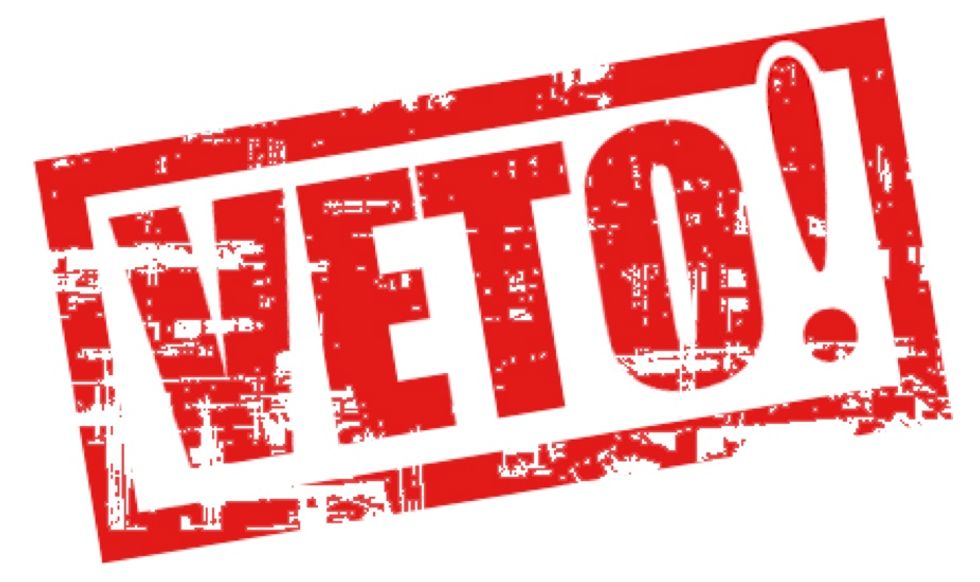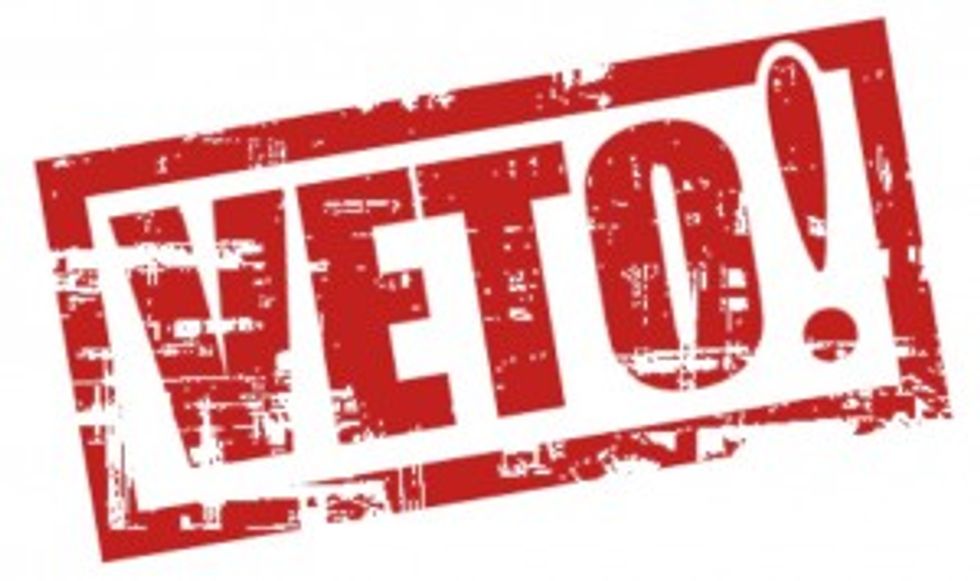
Photo Credit: Shutterstock

Just a few days into the new Congress, and President Barack Obama already has made three—count ‘em—credible veto threats.
Representatives and Senators had barely started work on fulfilling the mandate given them by their November victories when the president sent the clear signal: “Not on my watch.” While the president has the legal authority to wield the veto power this liberally, his doing so goes way beyond what the Framers of the Constitution envisioned.
The president’s specific threats concern three areas where reform is desperately needed. These include a bill to authorize construction of the Keystone XL pipeline and another to restore the definition of full-time work under Obamacare to 40 hours a week. Most recently, the president announced he would veto a bill to reform some provisions of the Dodd-Frank financial law. (For more, see my colleagues Marlo Lewis on the pipeline and John Berlau on Dodd-Frank).
 President Barack Obama delivers remarks on his executive action on immigration. (Image source: AP/Isaac Brekken, File)
President Barack Obama delivers remarks on his executive action on immigration. (Image source: AP/Isaac Brekken, File)
In doing so, the president is reinterpreting his veto power to make his truly an Imperial Presidency. Here’s why.
Under Article I, Section 7 of the Constitution, the president may disapprove a law by executive veto, subject to an override vote by two-thirds of the Senate and House. So the president is clearly within his right according to the letter of the Constitution. What is new is the president’s eagerness to use this power so broadly, and over issues that have been widely debated in the public arena. Indeed, the liberal exercise of this power was never intended by the Founding Fathers.
In The Federalist #73, Alexander Hamilton points out that the Executive, like the King of Great Britain, should have the power to restrain the legislature “calculated to guard the community against the effects of faction, precipitancy, or of any impulse unfriendly to the public good, which may happen to influence a majority of that body.”
But Hamilton then goes on to say that it has been a very long time since the British King exercised his negative (and it remains so to this day), and that:
If a magistrate so powerful and so well fortified as a British monarch, would have scruples about the exercise of the power under consideration, how much greater caution may be reasonably expected in a President of the United States, clothed for the short period of four years with the executive authority of a government wholly and purely republican?
For much of the history of the American Republic, presidents did hold such scruples, with Ulysses S. Grant holding the record of 45 vetoes during his presidency. But that was before the election of Franklin D. Roosevelt, the first “imperial President,” who was known to have his staff look for any excuse for a veto to keep Congress in its place. (A special case is Grover Cleveland, who issued hundreds of vetoes to to keep executive spending on pensions down.)
However, after the presidencies of FDR and his successor Harry Truman, vetoes returned to their normal level. Even Barack Obama himself has vetoed only two bills— in part because he had a friendly Congress, the rest because the Harry Reid-controlled Senate allowed no bill the president disagreed with to even come up for a vote.

So if the president is now threatening an FDR-like level of vetoes, it’s worth asking: Just what is he trying to achieve?
The answer probably lies in the very Latin origins of the word “veto,” which means “I forbid [it].” It gained wide use as the phrase uttered by the Roman Tribunes of the Plebs, the guardians of Rome’s lower caste, who acquired the power to veto laws on the basis that they would harm the plebs to the benefit of the patricians.
Insightfully, National Review’s Charles C. W. Cooke has called Obama “less Julius Caesar than he is a tribune of the plebs”—a characterization with which Obama appears to agree.
Yet in wielding the veto power so promiscuously, Obama is going beyond Caesar and tribunes like the Gracchi. It was Caesar’s heir, Octavian, who was awarded both executive power and tribunician power by the Senate and People of Rome. In so doing, he became Augustus, the first Roman emperor.
Iain Murray is a Vice President at the Competitive Enterprise Institute in Washington, D.C.
–
TheBlaze contributor channel supports an open discourse on a range of views. The opinions expressed in this channel are solely those of each individual author.